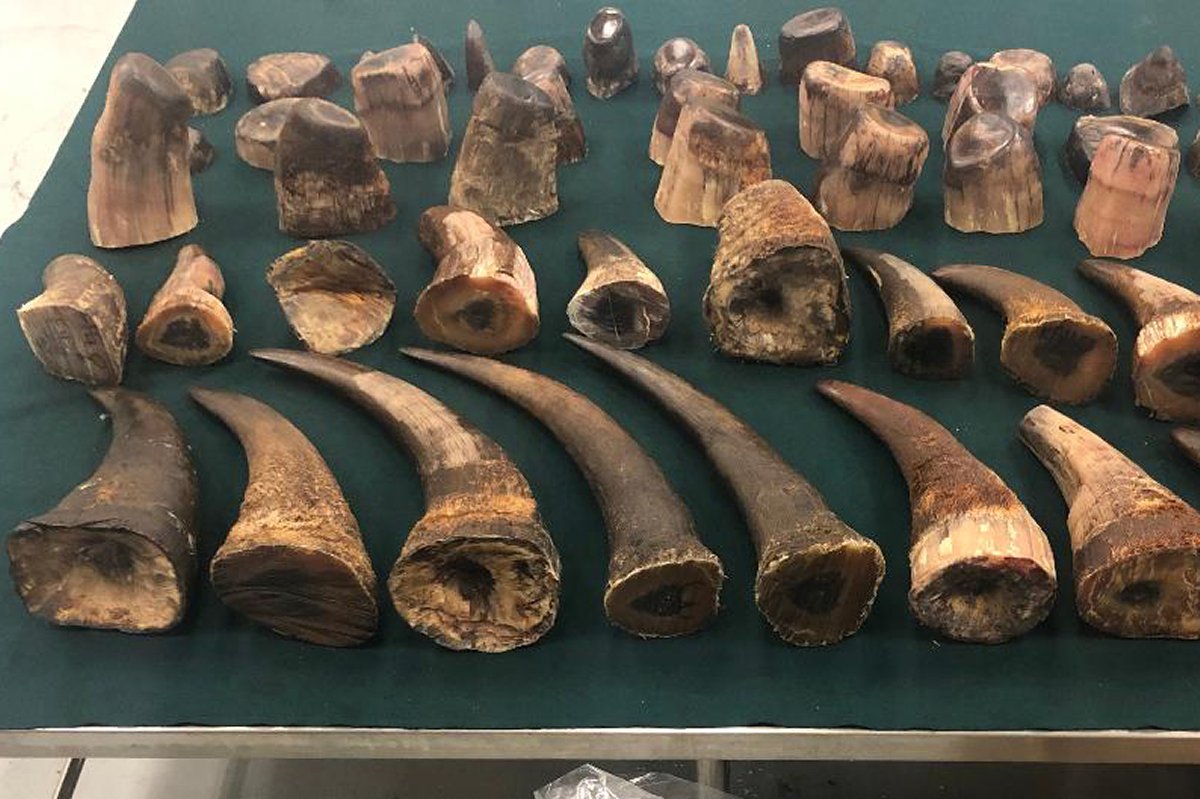UPDATED: Customs officials at Hong Kong International Airport have seized 82.5 kilograms of rhino horn, the largest recorded haul in five years and just the latest example of the city’s prominent role in the global wildlife trade.
In a statement on Saturday, officials said the rhino horn had been discovered the day before in a shipment of cargo declared as “auto parts.” A suspicious X-ray, however, prompted authorities to open the shipment and find the horns.
The shipment originated in South Africa and was destined for Malaysia, and had an estimated market value of HK$16.5 million (more than US$2.1 million).
A representative for the Agriculture, Fisheries and Conservation Department, which is now in charge of the case, said that because “Hong Kong is [only] the transition point for the cargo, there are no suspects identified” so far, but authorities are continuing to investigate.
The bust was the second major seizure of smuggled rhino horn in as many months, with some 40 kilos of rhino horn — also from South Africa, and destined for Vietnam — seized at the airport in February.
February also saw an enormous 8.3-ton bust of illegal pangolin scales, seized along side 2.1 tons of elephant ivory.
Rhino horns and pangolin scales are valued in Chinese traditional medicine for their purported — and totally unsubstantiated — health benefits. Both items are made almost entirely of keratin, the same substance that forms hair and fingernails. Still, the trade in the products has resulted in declines in both species.
The grim litany of busts has prompted conservationists to criticize Hong Kong officials for doing too little to combat a trade in which the city has played an outsized role for years.
A major report in January by the Hong Kong Wildlife Trade Working Group said that that “not only is the trade in legal and illegal wildlife at a significant and unsustainable scale, it is likely to get worse.” The group also maintained that Hong Kong “should and could do more to disrupt the associated criminal activity.”
Smuggling in illegal wildlife products carries a maximum fine of HK$10 million (about US$1.27 million) and a possible 10-year prison sentence. However, conservationists argue that penalties are still too lenient, cases are unevenly prosecuted, and wildlife crime should be included under the Organised and Serious Crime Ordinance to properly empower authorities to tackle the syndicates behind the trade.
NOTE: This story has been updated to include comment from the Agriculture, Fisheries and Conservation Department.





Reader Interactions